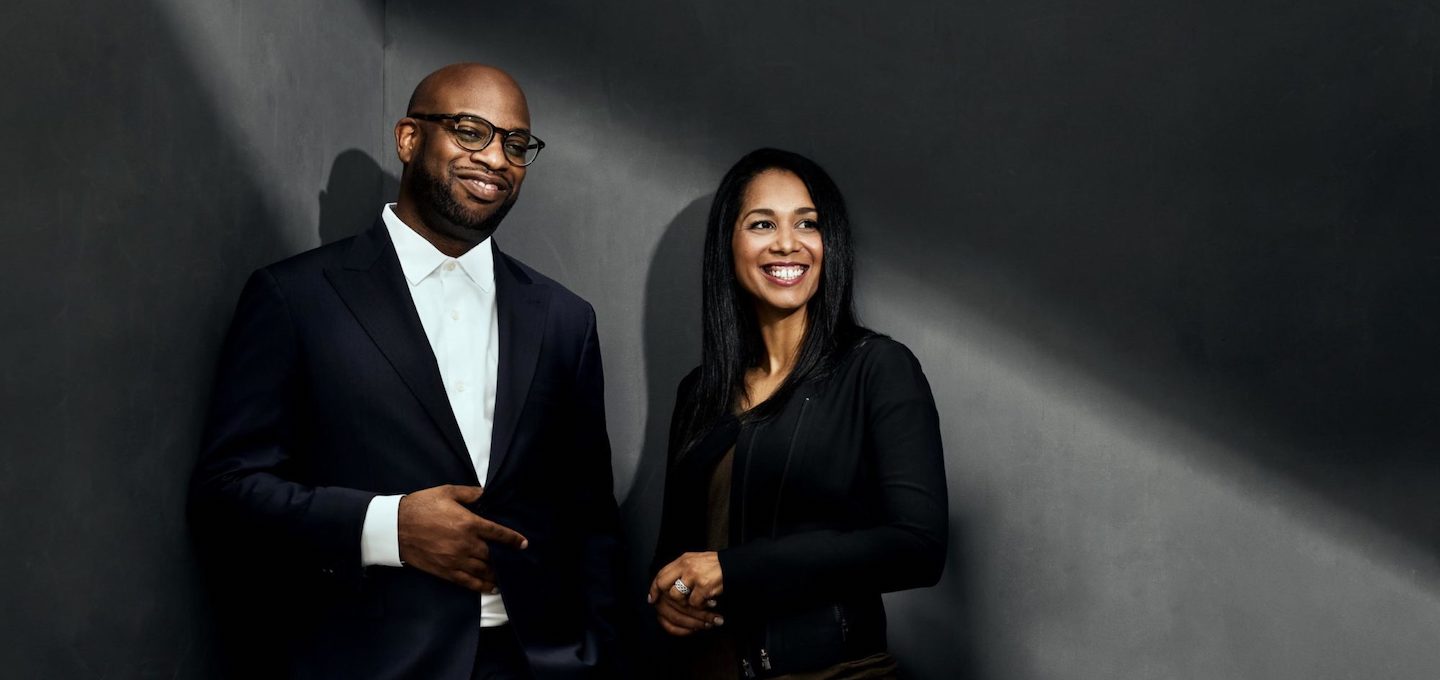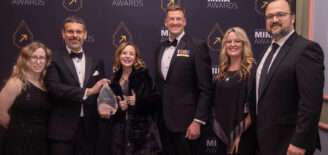Minority founded $50M VC fund focusing on underrepresented founders and regions expanding in Indy
Candice Matthews Brackeen and her husband Brian just announced that they are expanding Lightship Capital and bringing the firm’s $50 million in venture capital funds to Indianapolis. It’s the largest-ever VC fund raised by a Black woman in the U.S. The first order of business will be to find the right location for a community office and a talented, locally knowledgeable venture partner to run it with the Brackeens.
The Cincinnati-based firm is closely aligned with the Hillman and NewMe entrepreneurial accelerators (Candice founded Hillman and acquired NewMe in 2018), and is focused on supporting people of color, women, members of the LGBTQIAP community, immigrants, people with disabilities, and others in regions like the Midwest who have been overlooked and underfunded by traditional venture capital. The firm invests in consumer packaged goods (CPG), e-commerce, sustainability, artificial intelligence, and healthcare focused early stage companies.
Candice and Brian know first-hand how hard it is for women and minority entrepreneurs to raise the money they need to fuel their businesses. Though both were ultimately successful, each felt the sting of venture capital’s abysmal statistics—funding women owned startups at 11% of the total invested1 and black owned startups at just 1% of the VC total in 2019.2
Candice’s experiences include not being able to get a loan to buy equipment for her fitness studio in an affluent Cincinnati neighborhood, followed by maddening attempts to raise other funds. Brian raised $13 million for his Miami-based artificial intelligence face-recognition company, but it’s the Herculean effort it took for both to succeed that frustrates.
“No one is saying raising venture capital is supposed to be easy,” Brian said. “But what it took for Candice and me [separately and in different cities] was just a tough, tough slog and it really shouldn’t have been. I pitched my company over 1,000 times to raise $13 million. I got 120 investors to say yes, but should it really have taken all 880 no pitches to get there—for a solid company that today has a valuation of $120 million?”
That’s why Candice founded Lightship and Brian joined her as a general partner. They believe the Midwest needs more options for Black entrepreneurs and other minorities to find funding, and the Brackeens own experiences have shown them that the dearth of investors eager to get to know black entrepreneurs like them is a great opportunity for their VC firm. They intend to “become the type of investors that we never had,” Brian explained.
In a TechCrunch article from June, Sarah Kunst, the founder and managing partner of Cleo Capital in San Francisco (who also happens to be a Black woman), reacted to the venture capital industry’s sudden realization that underrepresentation is a problem.
“The way to find, hire and fund Black people in the tech world is the same as finding, hiring and funding any other group. You build relationships with people in that group, you seek out thought leaders from the community and learn from them, you tell your hiring and investing teams that there’s a hole in the fund’s expertise stack and you fill it. It’s not about tokenizing one person or donating to a one time effort or writing it off as a pipeline problem,” wrote Sarah, in a text to TechCrunch. “It’s using the embarrassment of skills and resources these funds have to learn, build relationships and deploy capital.”
Lightship has closed on $22 million for Lightship Capital Fund I, which is $2 million more than the original target amount. The firm is also planning a second close with an additional $23 million in commitments from investors. In total, Lightship expects to reach its Fund I hard cap of $50 million to deploy among minorities and other underrepresented groups who are seeking investment throughout the Midwest. They are already in discussions for a second fund.
“For a first-time fund, raising $5-$10 million is typical, and if you can raise $20 million then you’re really doing something right. We’re going to reach our $50 million legal limit, so I think that’s a pretty clear demonstration of the pent up demand out there that just needs the right people to show some leadership,” Brian said. “The fact that we’ve raised more than double our target amount for our very first funds should be something of a clarion call for other VC firms to get out there and start getting to know Black and minority founders.”
- Source: AllRaise 2. Source: RateMyInvestor



